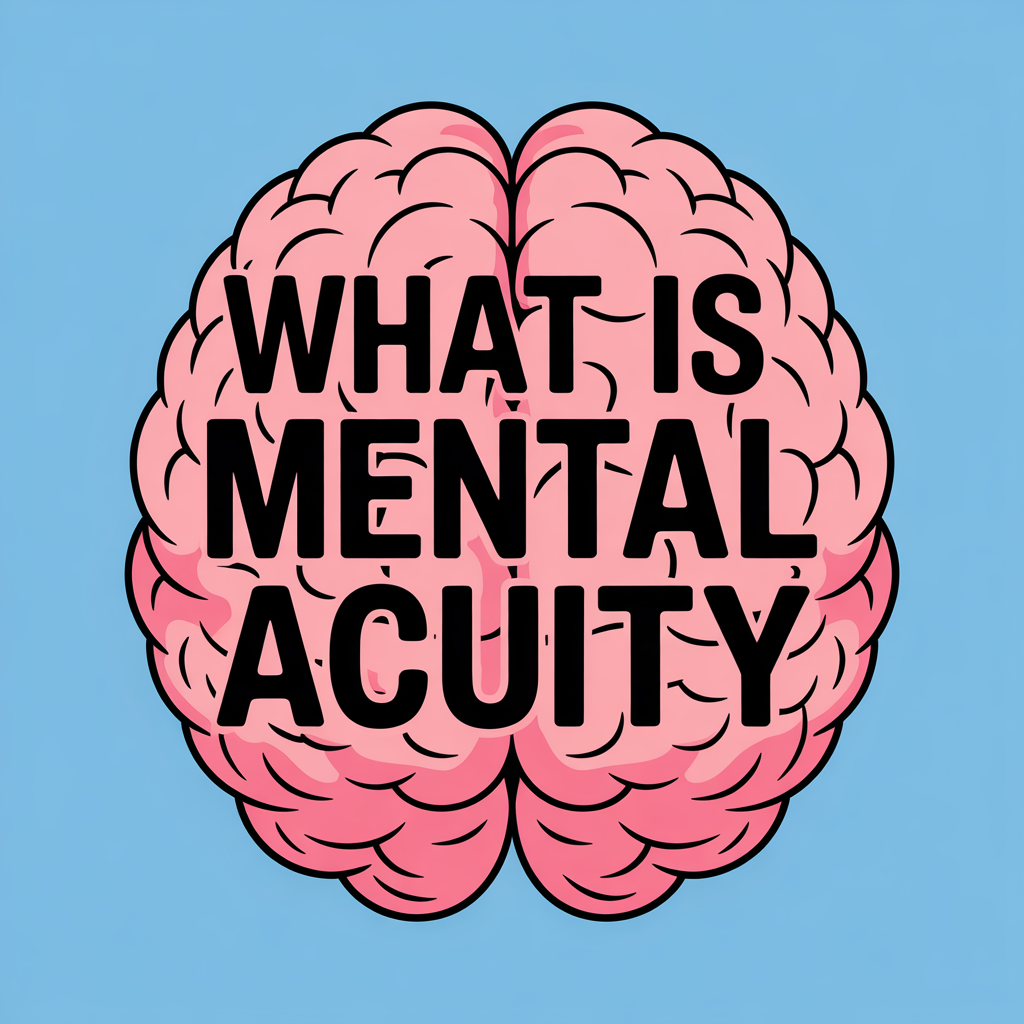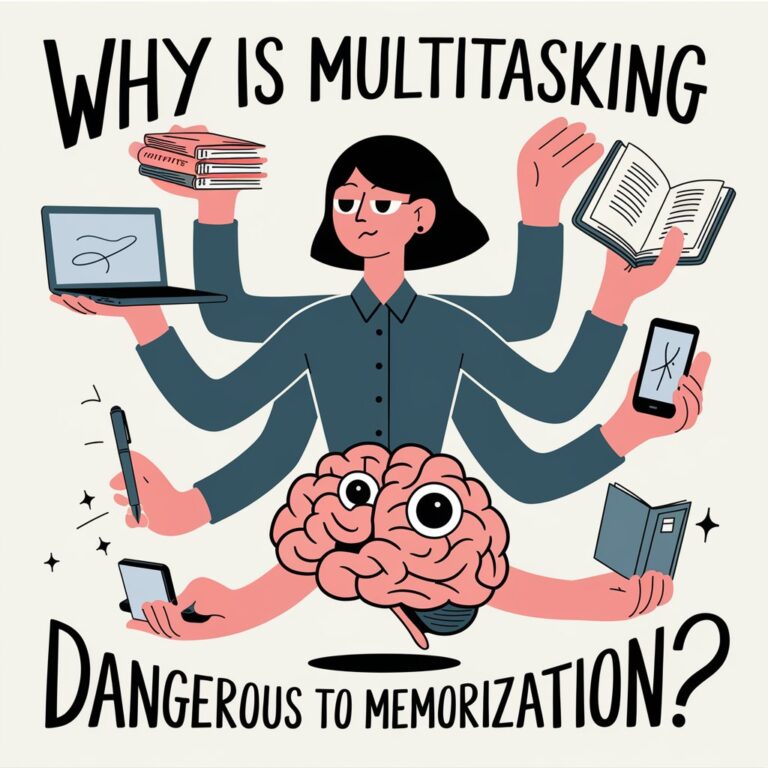“What is mental acuity?” is a question we have all tried to answer in our modern world, where everyone multitasks and where the cognitive burden is usually a reality. In an age where information is abundant but attention is scarce, keeping your mind sharp and your memory resilient isn’t just ideal—it’s essential. Acuity measures the speed of your decision-making and your ability to understand, learn, and remember information. It is linked to memory, focus, reasoning, and processing speed—all of which can be improved with purposeful effort.
The study has it that the symptoms of years piling up and stress can weaken the brain’s performance, but both science and field findings attest that mental sharpness can not only be preserved, in general, but it can also be enhanced if the mind is properly nurtured. The best part? These methods do not only work for the intellectual and the highly educated. They are inclusive, pleasant, and, most of the time, free. Here, you’ll see the ten most powerful strategies to develop your mind power, make your memory last longer, and start using them today.
Understanding The Core of Mental Acuity
Before we try to find real facts of the issue, it is vital to find out “mental acuity where we find”. In psychology, acuity means the sharpness of the thoughts—how easily and effectively you come up with, evaluate and retrieve data. To “define acuity in psychology”, the cognitive precision in perceiving and understanding stimuli is obvious.
Apart from memory, identifying, speed of processing, and flexibility are included in mental acuity.
- Logical thinking
- Memory retention
- Focus and concentration
- Cognitive flexibility
- Decision-making speed
Among the many reasons why these faculties can become out of use are not giving them appropriate exercises, anxiety, a poor diet, and the lack of needed intellectual arousal. However, brain neuroplasticity — that is, its capability to create new fellowships — offers us a chance to improve this condition by practicing so-called mental gymnastics.
1. Learn a New Language
There is solid proof that language acquisition raises a person’s cognitive abilities. Furthermore, studies show that individuals who know more than one language have the advantage of better mental performance and higher brain plasticity.
Through vocabulary, grammar, and syntax, learning a new language, the brain’s choice to modify and strengthen complex neural pathways is rewarded. It is like a brain workshop idea. As well as this, exposing oneself to different varieties of people breeds empathy and flexibility. This, in turn, promotes the psychological health and happiness of the person. A way in which this habit energizes the “psychological acuity” is by your brain’s immediate response to real-time puzzle-solving challenges is the fact that it is one of the ways that will help you get through the habit.
2. Adopt a Structured Reading Habit
Did you know that reading is far more than a way of fun? It is one of the exercises in which our brains are involved and are, therefore, fun. Thanks to the fact that you are training your brain to follow a story, make comparisons, and memorize new information, you are turning reading into an experience. Through the challenging of structured aims and designing your reading (e.g., reading all the musical works of one composer or focusing on one subject), you develop abilities like pattern recognition and long-term memory.
Instead of skimming, read thoroughly and deepen your understanding. Attend group discussions and take notes with your friends. Go back to your notes from time to time and push yourself to recall the main ideas only. This exercise boosts your understanding and memory, which both promotes the alertness of your brain and staves off boredom.
3. Play a Musical Instrument or Sing
The activity of playing a musical instrument activates the whole brain. To play an instrument requires coordination, rhythm, memory, and emotional processing, all of which stimulate brain growth. Musicians tend to have better memory, attention, and multitasking abilities.
Role-playing, not singing, is at the core of brain stimulation in this interesting study. One advantage of the research conclusion is that there is no need for instrumental proficiency to get these benefits. The pattern of word sequence in the sentence is still retained. The lyrics to be memorized will instill the tone to be modulated and the rhythm to be synchronized to the body. These are, in all fairness, some clever-come-cognitive exercises.
4. Meditate for Mind Clarity
One misconception is that meditation is just for those who are following Buddhist or Hindu philosophies. Meditation, in fact, is a method scientifically proven to be quite effective in the field of stress reduction and focus improvement. The prefrontal cortex gets a boost with regular meditation which is the area of the brain that decides, attends, and remembers in the brain.
To achieve mental acuity, the person should observe mindfulness and do a concentration-based meditation. Initially, you should start with 5 to 10 minutes of meditation and then proceed from there. Your attention will increase, you will store more information in your memory and will stay mentally organized. You will notice your ability to concentrate increasing time by time.
5. Play Brain-Challenging Games (With Purpose)
Logic, memory, and strategy-based games like Sudoku, chess, memory cards, and strategy-based games are supposed to be the best solutions for people who want to be at their best all the time. In this way, we can conclude that these games can be beneficial for the production of a flexible brain structure and the process of recall. The recommendations are that one should avoid using experiments for redundancy and guessing strategies that provide few long-term benefits.
Further, board games with social interaction, those that involve new types of play and challenges, are even more ideal than the first two. Social interaction adds a layer of cognitive strength through dialogue, empathy, and cooperation.
6. Reflect with Philosophical Thinking
Philosophy is a discipline that does not shy away from the deep thinking that is both intentional and methodical. As you digest a difficult passage or argue with someone, the ideas you held before may be changed, thereby your logical thinking becomes stronger and leaps and bounds ahead of others. The mental effort required to comprehend abstract ideas—or to explore what is abstract thinking in its truest form—limits the mind directly, pushing it toward greater intellectual development.
Maybe experiment by doing a journaling session that addresses multi-dimensional questions, or you can listen to philosophical podcasts. A huge learning of the cognitive abilities that one may have after rewiring the neural processes of the mind to contemplate, synthesize, and critically appraise cybernetic faculties will be the improvement of the mind’s functionality.
7. Optimize Sleep and Reduce Stress
Chronic stress and sleep deprivation significantly impair the sharpness of the mind. Sleep is the time when the brain renews and the poison molecules are removed from it. It inhibits retrieval, judgment, and thinking.
To take care of your mind, pick a regular sleep-wake schedule, put away electronic devices one hour before bed, and make sure your room is tidy and at a temperature that is comfortable for low sleep latency. Besides this, practice peace of mind through yoga, nature walks, or, if needed, therapy. The upshot of that being is, a person can experience new levels of vision, innovation, and recall.
8. Use Memory Techniques Daily
The utilization of mnemonic devices, memory palaces, and the method of spaced repetition has been backed by scientific experimentation. These methods provide loops in your memory, so after a subject is learned, information can be retrieved and stored securely and quickly.
You can incorporate these techniques into your daily activities, such as remembering the grocery list, making presentations, or learning new words. Every time you learn so-called functional memory properties or synapses, these paths become stronger and more efficient. This method will impart to you such a robust memory regime so that even in your senior years, you shall be as clear as a bell.
9. Write with a Reason
Contrary to the popular belief that writing is confined to the realm of fiction, it serves as a fundamental mental drill. The process of journaling, blogging, or even simply composing emails facilitates the maintenance of the order of thoughts, the accuracy of factual recollection, and depth of explanation.
If you are trying to become a good writer, creating book reviews and keeping a diary to reflect on everyday events are productive ways to do so. Moreover, you can also write letters, poems, or short stories. As you master the skill of clear thinking, your eloquence, memory, and emotional intelligence are bound to improve greatly.
10. Lifelong Learning and Curiosity Topped the List of Priorities in Different Fields
Always being curious is the guarantee of keeping your mind young forever. Ponder a science course, for example, where you wouldn’t be very comfortable. Astrological studies, the economy, and art history are among the various topics that you might be interested in. Go to lectures, watch documentaries, or, better yet, get involved in workshops.
A wide range of knowledge that is acquired will enable you to intertwine the different functions of your brain. This, in turn, makes extreme demands on your brain, forcing it to create new links, review problems from different angles, and, therefore, increase your mental repertoire. Such a spectrum of mental engagement not only heightens the potential of both short-term and long-term memories but also makes it function dynamically
Do Genes Influence Brainpower?
Yes, they do, but the impact is much less than you think. While having some hereditary diseases, such as Alzheimer’s, may boost your susceptibility, it still will not seal your fate. The area of lifestyle, nutrition, thinking habits, and emotional health often wields more influence than genetic predispositions.
Your dedication to brain training may aid in slowing and eventually reversing early signs of cognitive decline. By continuously being persistent, the brain may stay chameleon-like, the brain will be quick and easy in its functions.
Mental Acuity and Its Genetic Relation
Among the things humans do that have the greatest effect on enhancing the performance of the brain is their communication with each other. Discussions, in particular, have the capability to boost memory, language skills, and emotional control. The key is to take advantage of social relationships which serve as a buffer to depression and isolation thus protecting mental functions.
Allot a certain period to talk to friends or family regularly, join local community activities, or volunteer at a local charity organization. These shared experiences make you more, metaphorically, and physically, resilient thus, winter or any other season, can’t bother you.
Diet and Brain Health
You can positively alter the chemical makeup of your brain by eating well, which is quite literally the case of humans being what they eat. Cereals, nuts, fish, grain, and some vegetables (groats, oats, brown rice, barley, chia, flaxseeds, olive oil, avocado, and green tea) that contain the omega-3 fatty acids, antioxidants, and polyphenols are significantly effective in the brain cells’ development by preventing the inflammation of the tissues. So, qualified nutrition specialists warn us not to abuse substances such cs sugar or alcohol. Mediterranean cuisine is based on vegetation and omega-3 fatty acids from foods that can help both heart and brain functions.
Engage in minimal intake of sugar, alcohol-containing drinks, and industrialized meals in order to prevent memory impairment. A Mediterranean-style diet is okay in this case as it promotes vegetables as well as healthy fats which will give the heart the needed strength for it to function properly.
Exercise for Brainpower
Apart from the physical fitness benefits of working out, it is noteworthy to mention that it can stimulate the medulla, contributing to a progressive memory score. Cardio exercises can then stimulate more blood to the brain. This brings more oxygen and glucose to the brain. At the same time, resistance training will improve your mood and memory.
Strive for at least 30 minutes of moderate intensity 5 times a week. Walking, biking, dancing, and/or swimming are all the most common types of exercises that can give you a great workout, while leaving you free of stress and a good mood.
Stay Curious and Creative
Creativity is the source of thinking functions. In the activity of artists, the brain is stimulated to plan something, change a situation, and remember it in the end. They foster the upkeep of the neural framework’s flexibility and affective balance.
Exploring different techniques is the way to go. Gain knowledge in photography, become a sculptor, or find out what your talent in a story-telling. As a result, creative work will boost the functioning of your brain to a new level of performance.
Keep a Brain Journal
Make notes of the things you have acquired, the problems in your head, and the solutions you have come up with. Journaling not only serves to re-experience thought patterns and uncover potentially harmful patterns of thought, but journaling also helps you to evaluate your personal growth. Besides, it is a space that is solely yours to draft and think through your ideas and then come back to them at a later time.
Consider it as a self-coaching tool: journal your goals, make a note of what you have learned each week, and give your future self a challenge to accomplish.
Final Thoughts
During the second phase of our expedition, we again ponder over the question that “what is mental acuity” which now sounds more preferably like a task to be accomplished by an individual rather than an enigma. Mental acuity is not an unchangeable characteristic—it’s a fluid, growing set of abilities that you can cultivate throughout your life. By merging physical health, intellectual curiosity, emotional strength, and quality social interactions, you create a brain that’s not just operational but also extraordinary.
Remain on guard. Take care of your brain when stressed or distracted. Feel motivated by studying, playing, and enjoying the environment. Maintain discipline in practicing the habits that count the most.
What else will mental acuity mean other than the liberty to think lucidly, perform confidently, and enjoy your life the most?
And as you keep discovering and refining your mental fitness, don’t lose sight that “a sharp mind” is not about flawlessness but, on the contrary, is about staying curious, challenged, and engaged to last through every stage of life.
Thus, whenever you find yourself thinking, “What is mental acuity? Remember, it’s not only science but also your habits, choices, and commitment to growth that are the things that matter.




